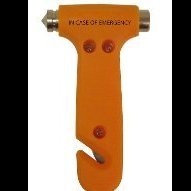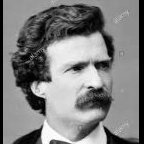American & British English In Thailand
-
Recently Browsing 0 members
- No registered users viewing this page.
Announcements
-
Topics
-
Latest posts...
-
11
Thailand Battles Monsoon Chaos: Floods Disrupt Travel and Aviation
It is curious to me that the current record level of flooding in Chiang Mai is seemingly being ignored by many media outlets. The attached photos are all from today and courtesy of Chiang Mai News. Approximately 50% of the greater CM area ( mostly the Eastern side) is now flooded including portions of the superhighway. The water is slowly moving south of the city, and peak flood levels subsiding. Additionally, they have stopped fresh water production in many areas, affecting up to 500,000 people. Food supplies in the city are getting low, with many volunteers bringing in supplies and rescuing those trapped. https://www.facebook.com/chiangmainews?mibextid=LQQJ4d -
6
Notorious Conwoman Arrested for Infiltrating Thai Parliament in Disguise
Is she maybe the lady who made the sh$t track? -
3
Auto-generated Thai now widely available on YouTube
Very strongly disagree. It is true there are errors, but overall it is an enormous net benefit. I would encourage all intermediate-advanced learners to use as a vital tool in rapid learning. Obviously you can switch off the default very easily. -
22
/Featured Quiz4 October - Weekly Featured Quiz - General Knowledge
I just completed this quiz. My Score 70/100 My Time 122 seconds -
102
Smart Home automations - anybody using?
I don't do any power monitoring at the moment. Once my solar/battery system is installed next month I'll hook HA into the inverter with a RS435 interface. But I have zero interest in monitoring individual bulbs or sockets for power use because nothing in my home uses electricity to such a degree that I need to monitor or control it. We're talking a few baht here and there, it's basically inconsequential. I may, however, use a clamp such as the one you mentioned, but only to monitor some of my dumb devices to determine when they are on or off, but nothing more than that. -
252
Is Thailand Value for money
Do you actually read anything or just get your information from friends? You can, if you choose to educate yourself on the subject, look up many links of how pizza and burgers can be healthy, and I did provide a link about pizza. Burgers can be un healthy or healthy. It depends on who makes them and with what. This is common sense. The same goes for many other foods. I've been into nutrition all my life. Read and re-read countless articles about what foods a person should eat for the best nutritional value, how to eat to stay lean, lower cholesterol, reduce body fat, lower your risks for diseases etc etc etc. A person who does this looks for all the information he can to improve his health, along with others he's training. It's called a job...............https://www.menshealth.com/nutrition/a26149219/is-pizza-healthy/. Here in Thailand I have had decent pizza, and I see that there are more places that supposedly have good pizza. Many cities worldwide have great pizza, according to other's opinions. This all started because you wanted to somehow disprove what I said about pizza et al, being healthy. You did this because I argued in an earlier post, saying NYC/New Jersey pizza is among the best worldwide. It is, and has been voted in many times. Italy had number one, along with Napolitano's. This is easily looked up. You disputing the poll thinking it's marketing is your opinion, and your deal. It doesn't make you right. It's all opinions about who makes the best of anything. Of course, places that get voted in every year must have good pizza if they're getting the majority of the votes. You thinking you know more than anyone about who makes the best, just because you tried a couple in NYC and Italy, means nothing. Your opinion, that's all. Like I said, if you want information, google it, instead of thinking you're right and others are wrong, just because you think so. I found this link, just gor you, in 5 seconds, although you will say it's wrong, marketing, lies, nonsense, rubbish, because? You think you're always right. Sorry to upset your wagon.....................https://www.consumerreports.org/health/healthy-eating/build-a-healthy-burger-a2658617628/ -
34
Thai Airways flight runs off runway in Bangkok storm scare
Huh???? How long do you stay in Thailand? 20 years ago it was a regular occurence that American pilots flew on the Thai planes. But in the message itself I made a mistake, I was under the impressionthat the skidding was caused by wrong management. But it turned out because aquaplaning and was not the fault by the pilot. -
2
Married 20 years, war zone, no visa - denied entry to evacuation aircraft
I would rather stay with my wife until death us do part than return to such a dysfunctional country run by a bunch of jobsworths . If world war 3 kicks off probably better off here anyway . Can't see Thailand getting nuked. -
34
Thai Airways flight runs off runway in Bangkok storm scare
Back in the day, Thai had some Scandinavian pilots in the planes. There was an agreement with SAS to provide them. -
2
Married 20 years, war zone, no visa - denied entry to evacuation aircraft
Good grief, I find it difficult to believe that they were unaware of the UK's Visa requirements. I think 99.9% of UK expatriates are well aware - and 100% of those who use this Forum. Seems like the BBC are just trying to make a fuss. -
34
Thai Airways flight runs off runway in Bangkok storm scare
No need for abuse just google airplane mishaps -
282
And so the exodus of quality expats begins. This time it's personal
Two things can be true at the same time. Phuket can be a hostile, rip-off hellhole for some, and an idyllic location for the long term expat type. The sanctimonious among the expat types giggle about the continual rip-off stories in downtown Patong, but not so much when they venture into the same areas and are treated with equal contempt. Phuket is well on its way to being the second Benidorm of Thailand. I think its a good thing that Pattaya and Phuket take in that mass tourist market and give the rest of the country a chance to crack on. However, I'll put my hands up to this - I'm CM biased, but the CM we saw between 2016 and the start of COVID was also descending to Benidorm levels. That's why I and many others fled the city to the countryside. Years ago I predicted that CM would become the Singapore of the North. COVID interrupted that but with the influx of Chinese money, high speed rail plus a new international airport, downtown CM will grind to a halt. That's only the first problem - land prices downtown have gone nuts. Within twenty years cheap Chiang Mai will be eradicated. Phuket is already well down that road and property developers will choke the place to death, as they will also do in CM. -
4
help needed for configuring Prime H370 Plus for NVMe RAID
update: I'm on track to solving the problem(s) the bluescreens were caused by faulty sata cables. I looked into the connectors and they seemed corroded, so I swapped them out and no more bluescreens. after that, I played around with some BIOS settings and finally I got Intel RST to work. in Intel RST, I noticed one of the NVMe disks had "status: unknown and usage: unknown", while the other had "status: normal and usage: available". so I swapped these drives out for another pair, and all worked as expected, I could create my RAID 1 volume in BIOS and it shows up properly in Intel RST and windows. So all I have to do now is clone the system disk onto the RAID volume and set it as boot disk in the BIOS. -
9
Suvarnabhumi Visa Exempt - Change of Tactic Applied
Spare a thought for extensions based on retirement. For married guys annual extension it's a sweet deal. Basically living in Thailand the 400k would sustain living (family) for few months as it can be used after stamp from under consideration period. Thinking OP is basically a nonsense. -
77
Trump Urges Israel to Strike Iran’s Nuclear Facilities
There are some analysts who claim an attack on Iran's nuclear facilities would only slow down the development process by a year or two. If Iran developed nuclear weapons would the leadership be prepared to commit national suicide by deploying them, rather than as a deterrence. A very long shot, but would Western powers again be able to develop an agreement with Iran to reverse the stupidity of trump's unilateral decision; I assume not.
-
.png.3b3332cc2256ad0edbc2fe9404feeef0.png)











Recommended Posts
Create an account or sign in to comment
You need to be a member in order to leave a comment
Create an account
Sign up for a new account in our community. It's easy!
Register a new accountSign in
Already have an account? Sign in here.
Sign In Now